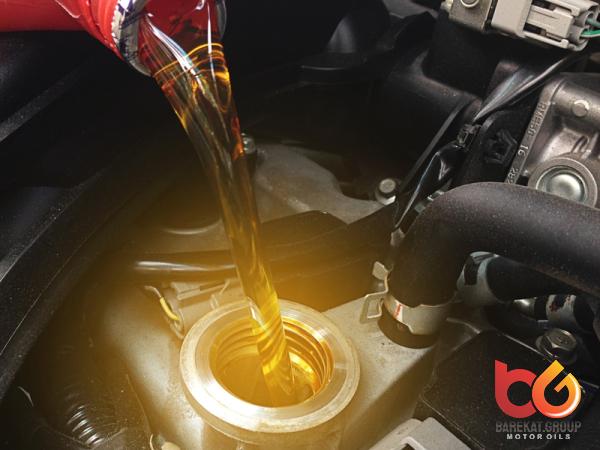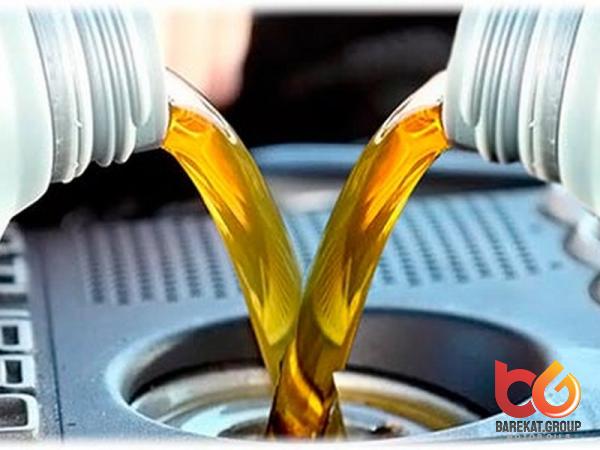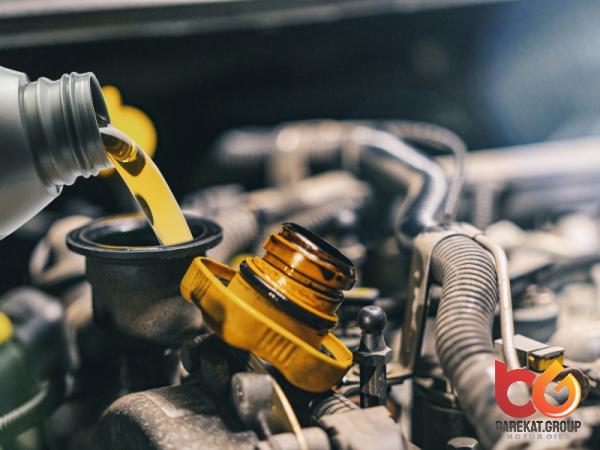Understanding Viscous Engine Oil: A Comprehensive Overview Introduction: Viscous engine oil plays a vital role in the efficient operation of vehicles and machinery. It acts as a lubricant, protecting internal components from wear and tear, reducing friction, and ensuring smooth operation. This article provides a thorough summary of viscous engine oil, highlighting its composition, functionality, importance in engine performance, and factors to consider when selecting the right type of oil for specific applications. 1. Composition of Viscous Engine Oil: Viscous engine oil is primarily comprised of base oils and additives. Base oils can be mineral oils derived from crude oil or synthetic oils synthesized from chemical compounds. Synthetic oils tend to provide better performance due to their uniform molecular structure and resistance to extreme temperatures. Additives enhance the oil’s properties, such as viscosity index (VI) improvers, detergents/dispersants, anti-oxidants, anti-wear agents, and friction modifiers. 2. Key Functions of Viscous Engine Oil: a. Lubrication: It forms a thin, protective film between moving parts, reducing friction and wear. b. Cooling: Engine oil helps dissipate heat generated during engine operation, preventing overheating. c. Cleaning: Detergent and dispersant additives keep the engine clean by removing sludge, deposits, and contaminants. d. Sealing: Engine oil assists in creating a tight seal between the piston rings and cylinder walls, preventing oil leakage and maintaining compression efficiency. e. Corrosion and Rust Protection: Additives in engine oil prevent rust formation and protect engine components from corrosive elements.
Engine oil
 3. Importance of Viscous Engine Oil in Vehicle Performance: a. Engine Efficiency: The viscosity of engine oil affects fuel efficiency, power output, and overall engine performance. Proper lubrication reduces friction between moving parts, minimizing energy losses and maximizing power output. b. Wear Protection: Viscous engine oil helps extend the life of critical engine components by reducing friction and wear. It minimizes metal-to-metal contact, preventing excessive wear and damage to engine parts. c. Cold Start Protection: Oil with suitable viscosity (lower viscosity index) provides easy cold-starting, allowing efficient lubrication during startup, reducing wear caused by dry engine conditions. d. Extended Engine Life: Regular oil changes using the correct viscosity and quality of oil help extend engine life by providing effective lubrication and reducing wear. e. Overall Efficiency: Viscous engine oil also helps optimize overall vehicle performance by ensuring smooth gear shifting, reducing noise, and enhancing the drivability of the vehicle. 4. Factors to Consider When Selecting Engine Oil: a. Viscosity Grade: Choosing the appropriate viscosity grade (e.g., 10W-30) depends on the operating temperature range and engine requirements outlined by the vehicle manufacturer. b. OEM Recommendations: Follow the original equipment manufacturer’s (OEM) recommendations for engine oil to ensure compatibility and meet warranty requirements. c. Synthetic vs. Mineral Oil: Consider the advantages and disadvantages of synthetic and mineral oils. Synthetic oils offer better performance and protection, especially in extreme conditions, but they can be more expensive. d. Additive Content: Pay attention to the type and amount of additives present in the oil, as they can affect performance, cleanliness, and protection. e. Certification: Look for engine oil that meets industry specifications and carries relevant certifications (e.g., API, ILSAC, ACEA) to ensure the product’s quality and compatibility with your vehicle. Conclusion: Viscous engine oil is a crucial component for maintaining optimal engine performance, extending engine life, and ensuring efficient operation of vehicles and machinery. Understanding its composition, functions, and the factors to consider when selecting the right type of oil is paramount for achieving reliable and long-lasting engine performance.
3. Importance of Viscous Engine Oil in Vehicle Performance: a. Engine Efficiency: The viscosity of engine oil affects fuel efficiency, power output, and overall engine performance. Proper lubrication reduces friction between moving parts, minimizing energy losses and maximizing power output. b. Wear Protection: Viscous engine oil helps extend the life of critical engine components by reducing friction and wear. It minimizes metal-to-metal contact, preventing excessive wear and damage to engine parts. c. Cold Start Protection: Oil with suitable viscosity (lower viscosity index) provides easy cold-starting, allowing efficient lubrication during startup, reducing wear caused by dry engine conditions. d. Extended Engine Life: Regular oil changes using the correct viscosity and quality of oil help extend engine life by providing effective lubrication and reducing wear. e. Overall Efficiency: Viscous engine oil also helps optimize overall vehicle performance by ensuring smooth gear shifting, reducing noise, and enhancing the drivability of the vehicle. 4. Factors to Consider When Selecting Engine Oil: a. Viscosity Grade: Choosing the appropriate viscosity grade (e.g., 10W-30) depends on the operating temperature range and engine requirements outlined by the vehicle manufacturer. b. OEM Recommendations: Follow the original equipment manufacturer’s (OEM) recommendations for engine oil to ensure compatibility and meet warranty requirements. c. Synthetic vs. Mineral Oil: Consider the advantages and disadvantages of synthetic and mineral oils. Synthetic oils offer better performance and protection, especially in extreme conditions, but they can be more expensive. d. Additive Content: Pay attention to the type and amount of additives present in the oil, as they can affect performance, cleanliness, and protection. e. Certification: Look for engine oil that meets industry specifications and carries relevant certifications (e.g., API, ILSAC, ACEA) to ensure the product’s quality and compatibility with your vehicle. Conclusion: Viscous engine oil is a crucial component for maintaining optimal engine performance, extending engine life, and ensuring efficient operation of vehicles and machinery. Understanding its composition, functions, and the factors to consider when selecting the right type of oil is paramount for achieving reliable and long-lasting engine performance.
Specifications of Engine oil
 By adhering to proper maintenance practices and following manufacturer recommendations, vehicle owners can maximize the benefits and performance of their engines while minimizing wear and potential damage.I. The Importance of Regular Oil Changes Regular oil changes are essential for maintaining the performance and longevity of an engine. Over time, engine oil degrades and loses its effectiveness, becoming contaminated with dirt, debris, and engine by-products. These contaminants can compromise the oil’s lubricating properties and lead to increased wear on engine components. By adhering to a regular oil change schedule, vehicle owners can ensure that their engines have clean, fresh oil that provides optimal lubrication and protection. II. Understanding Viscosity Grades and Their Significance Viscosity refers to the oil’s resistance to flow or its thickness. Engine oil comes in different viscosity grades, commonly represented by numbers like 10W-30 or 5W-40. The first number denotes the oil’s viscosity at low temperatures, while the second number indicates its viscosity at high temperatures. It is crucial to select the right viscosity grade for your specific vehicle, as oil that is too thick may not flow properly during cold starts, while oil that is too thin may not provide adequate protection at high temperatures. III. Synthetic vs. Mineral Oil: Making the Right Choice When selecting engine oil, vehicle owners have the option to choose between synthetic and mineral oil. Synthetic oils offer several advantages over mineral oils, including enhanced lubrication properties, improved resistance to high temperatures, better cold-start performance, and extended oil change intervals. However, synthetic oils tend to be more expensive than mineral oils. It is important to review the vehicle manufacturer’s recommendations and consider the specific operating conditions to determine which type of oil is best suited for your needs. IV. The Role of Additives in Engine Oil Additives play a crucial role in enhancing the performance and protective qualities of engine oil. Various additives are added to engine oil formulations to improve viscosity index, prevent oxidation and breakdown, reduce friction and wear, enhance detergency and dispersancy, and protect against corrosion. Common additives include detergents/dispersants, anti-oxidants, anti-wear agents, and friction modifiers.
By adhering to proper maintenance practices and following manufacturer recommendations, vehicle owners can maximize the benefits and performance of their engines while minimizing wear and potential damage.I. The Importance of Regular Oil Changes Regular oil changes are essential for maintaining the performance and longevity of an engine. Over time, engine oil degrades and loses its effectiveness, becoming contaminated with dirt, debris, and engine by-products. These contaminants can compromise the oil’s lubricating properties and lead to increased wear on engine components. By adhering to a regular oil change schedule, vehicle owners can ensure that their engines have clean, fresh oil that provides optimal lubrication and protection. II. Understanding Viscosity Grades and Their Significance Viscosity refers to the oil’s resistance to flow or its thickness. Engine oil comes in different viscosity grades, commonly represented by numbers like 10W-30 or 5W-40. The first number denotes the oil’s viscosity at low temperatures, while the second number indicates its viscosity at high temperatures. It is crucial to select the right viscosity grade for your specific vehicle, as oil that is too thick may not flow properly during cold starts, while oil that is too thin may not provide adequate protection at high temperatures. III. Synthetic vs. Mineral Oil: Making the Right Choice When selecting engine oil, vehicle owners have the option to choose between synthetic and mineral oil. Synthetic oils offer several advantages over mineral oils, including enhanced lubrication properties, improved resistance to high temperatures, better cold-start performance, and extended oil change intervals. However, synthetic oils tend to be more expensive than mineral oils. It is important to review the vehicle manufacturer’s recommendations and consider the specific operating conditions to determine which type of oil is best suited for your needs. IV. The Role of Additives in Engine Oil Additives play a crucial role in enhancing the performance and protective qualities of engine oil. Various additives are added to engine oil formulations to improve viscosity index, prevent oxidation and breakdown, reduce friction and wear, enhance detergency and dispersancy, and protect against corrosion. Common additives include detergents/dispersants, anti-oxidants, anti-wear agents, and friction modifiers.
Buy Engine oil
 The quality and quantity of additives in engine oil can greatly impact the oil’s performance and protection capabilities. V. OEM Recommendations: Following Manufacturer Guidelines To ensure optimal engine performance and preserve warranty coverage, it is essential to follow the original equipment manufacturer’s (OEM) recommendations for engine oil. Vehicle manufacturers carefully specify the types of oil and viscosity grades that are best suited for their engines. Following these guidelines helps maintain compatibility and maximize engine performance. VI. Compatibility with Aftermarket Equipment and Modifications Vehicle owners who have made modifications or added aftermarket equipment to their vehicles need to consider the compatibility of the engine oil with these changes. Some modifications, such as increased power output or changes to the cooling system, may require specific oil formulations to ensure proper lubrication and protection. Consulting with a trusted mechanic or following aftermarket equipment manufacturer recommendations is advised in these situations. VII. Extended Drain Intervals: Understanding the Benefits and Risks Advancements in engine technology and oil formulation have led to extended drain intervals for some vehicles. Extended drain intervals can reduce maintenance costs and decrease environmental impact by minimizing used oil disposal. However, it is important to note that extended drain intervals are not suitable for all vehicles and operating conditions. Factors such as driving conditions, load, and temperature extremes can impact the lifespan of engine oil. Consult the manufacturer’s guidelines and consider oil analysis services to determine if extended drain intervals are feasible. VIII. Environmental Considerations: Recycling and Disposal Used engine oil poses a significant environmental risk if not disposed of properly.
The quality and quantity of additives in engine oil can greatly impact the oil’s performance and protection capabilities. V. OEM Recommendations: Following Manufacturer Guidelines To ensure optimal engine performance and preserve warranty coverage, it is essential to follow the original equipment manufacturer’s (OEM) recommendations for engine oil. Vehicle manufacturers carefully specify the types of oil and viscosity grades that are best suited for their engines. Following these guidelines helps maintain compatibility and maximize engine performance. VI. Compatibility with Aftermarket Equipment and Modifications Vehicle owners who have made modifications or added aftermarket equipment to their vehicles need to consider the compatibility of the engine oil with these changes. Some modifications, such as increased power output or changes to the cooling system, may require specific oil formulations to ensure proper lubrication and protection. Consulting with a trusted mechanic or following aftermarket equipment manufacturer recommendations is advised in these situations. VII. Extended Drain Intervals: Understanding the Benefits and Risks Advancements in engine technology and oil formulation have led to extended drain intervals for some vehicles. Extended drain intervals can reduce maintenance costs and decrease environmental impact by minimizing used oil disposal. However, it is important to note that extended drain intervals are not suitable for all vehicles and operating conditions. Factors such as driving conditions, load, and temperature extremes can impact the lifespan of engine oil. Consult the manufacturer’s guidelines and consider oil analysis services to determine if extended drain intervals are feasible. VIII. Environmental Considerations: Recycling and Disposal Used engine oil poses a significant environmental risk if not disposed of properly.
Engine oil + buy and sell
 Vehicle owners should ensure that used oil is collected and recycled at authorized recycling centers or through oil collection programs. Recycling used oil properly helps to protect the environment and conserve valuable resources. It is essential to follow local regulations and guidelines for the proper disposal of used oil and oil filters. IX. Industry Specifications and Certifications: Ensuring Quality Engine oil that meets industry specifications and carries relevant certifications provides assurance regarding its quality and compatibility with specific engine types. Look for certifications such as the American Petroleum Institute (API), International Lubricant Standardization and Approval Committee (ILSAC), or the European Automobile Manufacturers Association (ACEA). These certifications ensure that the oil meets the necessary performance and quality requirements. X. The Impact of Engine Oil on Fuel Economy The choice of engine oil can influence the fuel efficiency of a vehicle. Engine oils with low friction characteristics, such as those formulated with synthetic base oils and friction modifiers, can help reduce energy losses due to friction. This, in turn, can contribute to improved fuel economy and reduced greenhouse gas emissions. Selecting the right engine oil can play a significant role in optimizing vehicle fuel efficiency. XI. The Future of Engine Oil: Advancements and Technological Developments Continued research and development in engine oil technology are leading to advancements in oil formulations that offer better performance, increased protection, and extended drain intervals. New additives, base oils, and synthetic blends are being developed to address the demands of modern engines and to ensure optimum performance under varying operating conditions. As engines evolve, engine oils must keep pace to meet the ever-increasing performance requirements. Conclusion: Viscous engine oil is a critical component in ensuring the smooth and efficient operation of vehicles and machinery. Understanding the composition, functions, and factors to consider when selecting the right engine oil is crucial for maximizing engine performance, minimizing wear and tear, and extending the overall lifespan of the engine. By adhering to proper maintenance practices, following manufacturer recommendations, and staying informed about industry advancements, vehicle owners can optimize the performance and longevity of their engines, ensuring their vehicles run smoothly for years to come.
Vehicle owners should ensure that used oil is collected and recycled at authorized recycling centers or through oil collection programs. Recycling used oil properly helps to protect the environment and conserve valuable resources. It is essential to follow local regulations and guidelines for the proper disposal of used oil and oil filters. IX. Industry Specifications and Certifications: Ensuring Quality Engine oil that meets industry specifications and carries relevant certifications provides assurance regarding its quality and compatibility with specific engine types. Look for certifications such as the American Petroleum Institute (API), International Lubricant Standardization and Approval Committee (ILSAC), or the European Automobile Manufacturers Association (ACEA). These certifications ensure that the oil meets the necessary performance and quality requirements. X. The Impact of Engine Oil on Fuel Economy The choice of engine oil can influence the fuel efficiency of a vehicle. Engine oils with low friction characteristics, such as those formulated with synthetic base oils and friction modifiers, can help reduce energy losses due to friction. This, in turn, can contribute to improved fuel economy and reduced greenhouse gas emissions. Selecting the right engine oil can play a significant role in optimizing vehicle fuel efficiency. XI. The Future of Engine Oil: Advancements and Technological Developments Continued research and development in engine oil technology are leading to advancements in oil formulations that offer better performance, increased protection, and extended drain intervals. New additives, base oils, and synthetic blends are being developed to address the demands of modern engines and to ensure optimum performance under varying operating conditions. As engines evolve, engine oils must keep pace to meet the ever-increasing performance requirements. Conclusion: Viscous engine oil is a critical component in ensuring the smooth and efficient operation of vehicles and machinery. Understanding the composition, functions, and factors to consider when selecting the right engine oil is crucial for maximizing engine performance, minimizing wear and tear, and extending the overall lifespan of the engine. By adhering to proper maintenance practices, following manufacturer recommendations, and staying informed about industry advancements, vehicle owners can optimize the performance and longevity of their engines, ensuring their vehicles run smoothly for years to come.
Your comment submitted.